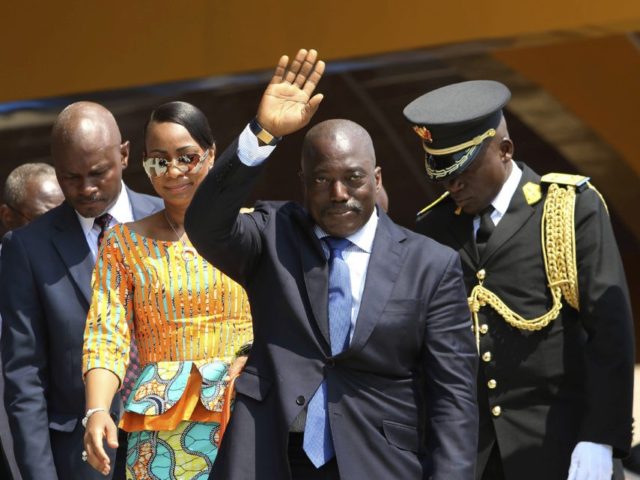Cardinal Laurent Monsengwo Pasinya, the Catholic archbishop of Kinshasa, has emerged as the lone leader speaking out against the abusive presidency of President Joseph Kabila in the Democratic Republic of Congo (DRC).
Coming to power after the assassination of his father in 2001, Kabila had agreed to step down after his second and final constitutional term came to an end in 2016, but instead held on to his post. Not only has Kabila overstayed his mandate, however, he has also overseen alleged human rights violations and dozens have died in political protests, fueling fears of a return to civil war in the severely tried nation.
The Congolese bishops have spoken out against the government’s plan to remove term limits that bar him from re-election. The Catholic Church brokered a deal with Kabila that allowed him to stay in power long enough to organize elections in 2017, but the date has now been pushed back to December 2018 and observers fear it will again be ignored. For his part, the president has blamed delays on a slow voter registration process.
Protesters, who have been formally banned by the Congolese government, have organized demonstrations calling for an end to President Kabila’s unconstitutional stay in power.
The Catholic Church was instrumental in organizing two separate peaceful protest events in December and January, in the Congolese capital of Kinshasa. Police, however, broke up the demonstrations using live rounds and tear gas, and at least 15 people were killed in the ensuing conflict.
Shortly afterward, in a Jan. 24 interview with Vatican News, Cardinal Monsengwo described the scene of unprovoked violence against protesters.
“There were deaths, there were military armed to the teeth as if it were a battlefield!” the Ccardinal said. “They started beating people, they started arresting priests and religious.”
“Can someone reasonably shoot people singing hymns whose only weapons are rosaries and Bibles?” he asked.
“If the country continues to be governed like this we won’t go far,” he said. “When you shoot on people and impede them from going to church, it’s impossible.”
“We are in an open-air prison,” he added.
In late January, Pope Francis spoke out against violence in the nation, but refrained from taking sides in the escalating conflict.
“Unfortunately, troubling news continues to come from the Democratic Republic of the Congo. Therefore, I renew my call for everyone to commit to avoiding all forms of violence,” Francis said after his weekly General Audience on Jan. 24.
“For her part, the Church wants nothing other than to contribute to the peace and to the common good of society,” he said.
The Pope’s appeal came on the heels of a similar one he issued on the last day of his apostolic journey to Peru, when he called on DRC authorities to do everything in their power to avoid all forms of violence.
The world, he said on that occasion, is “full of problems, full of wars. Today I have heard very concerning news coming from the Democratic Republic of Congo; let us think of that country.”
“In these moments, from this Plaza and with all those young people, I ask the authorities, those responsible and everyone within that beloved nation, to make the greatest commitment and effort to avoid every form of violence and to find solutions that favour the common good,” he said.
As president of the Catholic bishops’ conference, the 79-year-old Monsengwo is the de facto head of the Catholic Church in the DRC, with some 32 million followers out of a population of 80 million.
Some Congolese demonstrators have openly praised Cardinal Monsengwo as a would-be liberator, in opposition to the current president, chanting “Kabila, you are no longer our president, our new leader is Monsengwo.”
“We were like orphans because we haven’t had anyone to speak for us since he passed away,” said protester Edith Ekofo in reference to veteran opposition leader Étienne Tshisekedi, who died last year. “Now, God has sent us somebody who will liberate us from the slavery and dictatorship of Kabila and his yes-men.”
According to Hans Hoebeke, a senior analyst with International Crisis Group, the Catholic Church has been a key player in DRC’s history, acting effectively and prudently.
The Church’s 160 parishes in Kinshasa alone serve as a grassroots “barometer for social and political tension,” he said.
Follow Thomas D. Williams on Twitter Follow @tdwilliamsrome

COMMENTS
Please let us know if you're having issues with commenting.